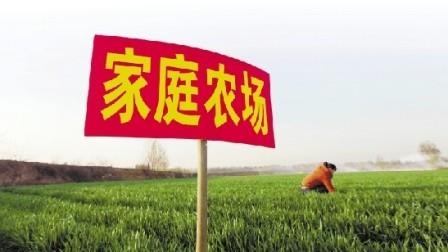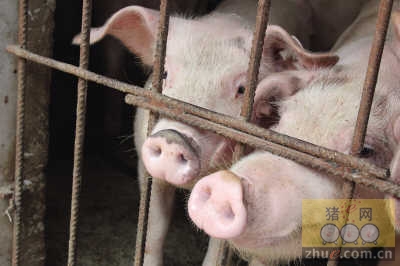The annual income of family farmers is 3 million, and Hefei registers 988 "family farms" in one year.
Picking strawberries, picking grapes, enjoying peach blossoms and watching cherry blossoms, there have been many good places for leisure and sightseeing around Hefei in recent years, many of which are family farms run by farmers, who develop tourism while operating agricultural production, and their income has also doubled.
In 2013, the Central Committee document No. 1 mentioned the concept of "family farm" for the first time, encouraging and supporting the transfer of contracted land to large professional households, family farms and farmers' cooperatives. Exactly a year later, the number of registered family farms in Hefei reached 988. And the rapid rise of the "family farm fever" at the same time, difficult employment, financing, high rents, weak infrastructure and other problems also plagued some "farmers."

Most of the family farms in Hefei have changed from the original big growers, most of which are mainly grain and oil farms such as rice, wheat and rape, as well as ecological agriculture with seedlings and flowers, aquaculture and leisure and sightseeing. However, the reporter found that as a grain and oil farm with large scale and much investment, its income is far less than that of a few hundred mu of "fruit farm."
Real tuhao
Strawberry farmers earn 3 million a year
In May, rising temperatures gradually removed delicate strawberries from the market, but Jiang Xiuzhi was surprised by a rain over the weekend, which meant that strawberries on her farm could be sold for another 10 days. After that, Jiang Xiuzhi's family farm will enter a relatively idle period of the year. In July last year, Jiang Xiuzhi registered to set up a strawberry family farm on more than 200 mu of land transferred in Changfeng. Since then, a lot of changes have taken place. "in March and April this year, there were a lot of strawberry pickers, and on the most day, 300 to 400 people went to the fields to pick, and everyone was too busy to fight."
In addition to the individual visitors who pick strawberries every day, the travel agency also took the initiative to contact Jiang Xiuzhi, bringing her a lot of business. "I really didn't expect that when strawberries first came on the market, five or six travel agencies called and said they hoped to cooperate." Chiang Hsiu-chi finally learned that they had taken a fancy to the brand of their "family farm."
In the market competition, reputation and quality are the best brands for merchants. Jiang Xiuzhi believes that this is the greatest benefit to her after registering the family farm. During the picking period of more than a month, Jiang Xiuzhi earned nearly 300000 yuan, but this is only 1/10 of her total income of strawberries.
In 1994, Jiang Xiuzhi began to try to grow strawberries in her own field. Ten years later, the planting scale reached 30 mu. With the launch of the "Changfeng Strawberry" market brand, Jiang Xiuzhi continued to expand the planting area until the 200 mu when she registered the family farm last year. Jiang Xiuzhi's strawberries are mainly sold to Beijing, Tianjin and Shaanxi, with an annual income of nearly 3 million yuan.
It turned out that when they were on a small scale, they were all looking for businesses on their own. Now, after the registered farm has achieved large-scale operation, many businesses have taken the initiative to put the packing boxes in front of Jiang Xiuzhi's house. "when they are full, they will come and pull them themselves."
While the income is high, the cost also increases greatly. Jiang Xiuzhi told reporters that a seedling greenhouse costs more than 1 million, plus introduction and breeding, personnel and rental costs, and so on, "the cost is almost one or two million a year." Even if the cost rises, Jiang Xiuzhi is still optimistic about the future of the strawberry market and is "ready to expand again from next year."
After strawberries went off the market, Chiang Hsiu-chi did not want to be completely idle. While cultivating strawberry seedlings and selling them, she also planted 20 to 30 mu of watermelons. "if watermelons are on the market in June and July, you can earn almost 10,000 yuan per mu."
"walk a tightrope"
Grain and oil farmers manage carefully
In another 10 or 20 days, we will be busy harvesting wheat. Pan Yingyou hurriedly bought two agricultural tractors before that. After more than 1000 mu of wheat was cut, the remaining orange stalks were mechanically "bundled" and then sent to the power plant. In response to the "orange pole burn ban" rule, Pan Yingyou is going to buy four tractors, each of which will cost about 120000 yuan. "buy two for trial first."
On March 8, 2013, Pan Yingyou, a big grower in Tongda Town, Lujiang County, obtained a business license for individual industrial and commercial households from the department of industry and commerce and became the "farmer" of the first family farm in Hefei.
After the development from 45 mu of land in 2002 to more than 1000 mu today, Pan Yingyou has been very careful in his management. "if you earn 10 cents more per jin of rice, the total income will be a lot more. If you are careless, you may lose a lot of money."
"after drying the grain, store it in the warehouse, stagger the peak period of grain purchase, and wait for people to come to the door and ask for it, then you can sell it at a good price." Pan Yingyou's strategy of "selling grain at the wrong peak" makes him earn more than 100 yuan per mu of grain. To this end, Pan Yingyou had to spend 500000 yuan last year to buy a set of grain drying equipment and build a new grain warehouse.
Large-scale means mechanization. At present, Pan Yingyou's farm carries out mechanized operations from leveling land, sowing and transplanting seedlings to fertilizing and spraying, harvesting and drying. Pan Yingyou told reporters that the cost per mu is about 1500 yuan. The output value is about 2000 yuan, "earning 500 yuan per mu, with an annual income of about 500000 yuan, most of which will be used in the purchase of agricultural machinery." For the future, Pan Yingyou hopes to maintain the status quo. "more than 1000 mu of land is already the limit for me."
Food crops are not compared with other cash crops, and their market purchase prices are "relatively stable", forcing "farmers" to manage them cautiously. "Grain rises by 10 cents per jin a year, while the costs of rents, seeds and fertilizers all go up." Wang Shousen runs a farm of more than 2200 mu in Feidong, which is one of the largest family farms in Hefei. He told reporters that he had invested two or three million yuan in the early stage, with a net income of about 600000 yuan a year, "but in the coming year, it will cost more than 100,000 yuan to buy seeds, more than 200,000 yuan to spend on chemical fertilizer, and money will be spent on daily rent and maintenance."
At present, in order to "make up for" grain cultivation, Wang Shousen has set aside part of the land for the cultivation of vegetables in the greenhouse. "this is more profitable than grain."
Play with transformation
Big grain growers turn to ecological agriculture
Miao Wu has recently been busy learning the experience of ecological agriculture development. he plans to contract another 500 to 600 mu of land for ecological planting and breeding in the next two years. This is regarded by Miao Wu as the direction of transformation in the future.
In 2010, Miao Wu contracted 500 mu of land in Chaohu to grow rice and wheat, and in March last year, he became one of the first big growers in Hefei to register to set up a family farm. "there is not much room for profit by growing rice and wheat alone." Miao Wu has invested NT $2 to NT $3 million in the early construction of water conservancy facilities, but judging from the current returns, he has not met expectations. "the investment is large, the return is slow, and there is not much money on hand." Miao Wu began to think about the road of transformation.
Related
- A course of planting techniques and methods on how to grow carrots
- How to plant the latest tulips?
- Is it better to pick tea in the morning or in the afternoon? When is the best time for tea to be picked? what is the third or fifth tea?
- Launch Yuanxiao Happy combination Haocha + Tea Yuan healthy Taste
- Penghu Tourism "Fireworks 20 Parade with You"
- 2022 West Lake Happiness holds "Digital Revitalization Voucher" and draws iphone13 and laptop.
- Banqiao Fuzhou social houses are designed to change start-up combined with police elimination to create a safe and livable environment
- The convenient measure of "mechanical weeding" in Xinbei has been abused and the Agriculture Bureau has imposed heavy penalties on the illegal land consolidation.
- Changgeng University Joins Hands with Four Memory Factories to Rescue Memory Talent Shortage
- The list of Taiwan's top 100 MVP managers is listed by the Director-General of the Farmers' Association of Sanxia District.



